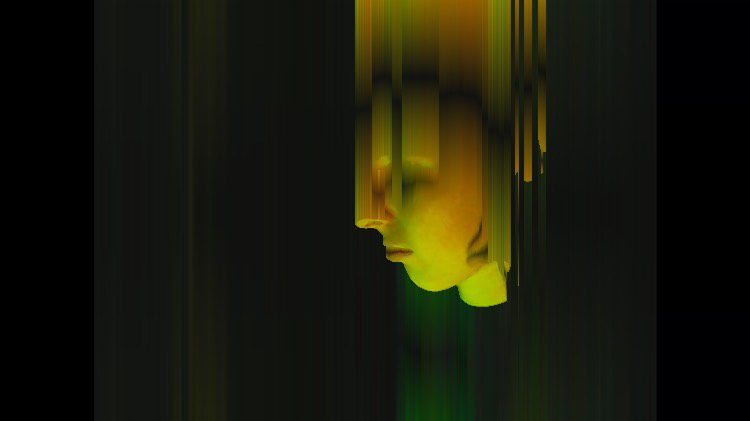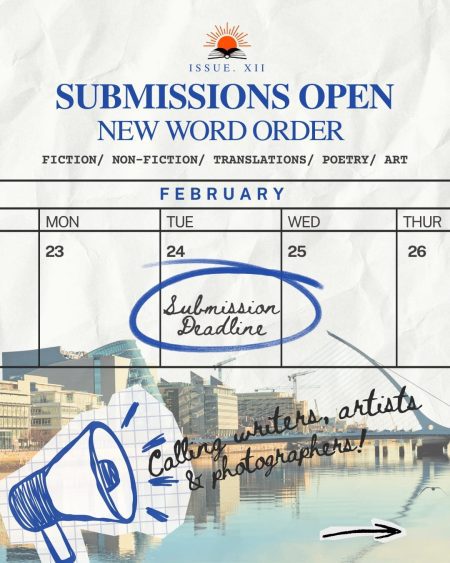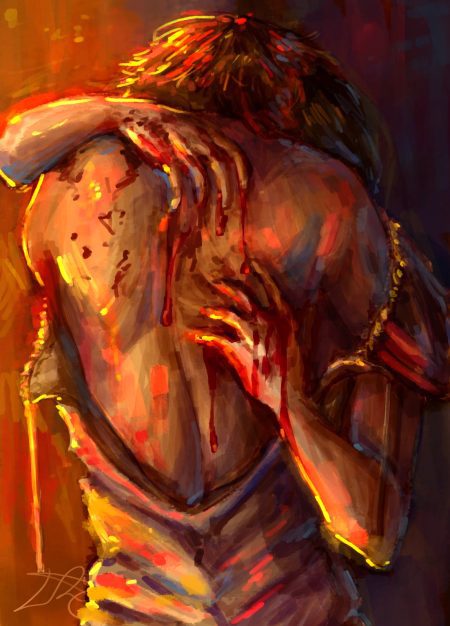By Edward O’Dwyer
Art By Ash Clancy
The people didn’t react at all fearfully when the apocalypse came. There was no reason to because there wasn’t any of the predictable cinematic stuff. There was no fire or rioting or mayhem in the streets when the apocalypse showed up. There were no tsunamis closing in from all sides, none of those histrionics. The apocalypse had grown so weary of the misrepresentations.
It didn’t approach them at all apocalyptically. Instead, it was dressed in a full clown suit and make-up.
It walked up the driveway just like a clown coming to a kid’s birthday, keeping an appointment, and that might be just how the apocalypse viewed it, too – it had been called up, its services asked for, arrangements made.
The people opened up the door and greeted the apocalypse because they had seen the colourful suit, floppy shoes, and big painted-on smile, and then they had heard the doorbell ringing.
The apocalypse made the people smile and laugh, made them happy. The people poured beverages and passed around snacks, they were dunking tortilla chips into an array of dips. The kids were allowed fizzy drinks, a treat.
The apocalypse knew its audience. It had the people right where it wanted them. That’s precisely why it put on the costume and learned to make balloon animals. The apocalypse squirted water at the people from a flower on its lapel and the cheers grew and grew. It didn’t want to be that cliché of the apocalypse, didn’t want to be running around and frantically shouting “I am the apocalypse” into the people’s faces.
It started out that way but then, through the laughter, bit by tiny bit, the apocalypse began to reveal more of itself. Even the apocalypse has to be itself, in the end, and this was its come-back, its rebound shot.
The laughing and joking faded out and the sounds of anguish faded in. The people were crying. They were despairing. They were holding on tightly to their loved ones.
Still, the apocalypse was an extraordinarily professional clown. It stayed perfectly in character as it started to pull a red tissue from its pocket and hand it to the people to tend to their tears. Tied to the red one was a green one, then a blue one, and then a yellow one. The apocalypse kept pulling on the tissue and more and more of it kept appearing from the deep and seemingly endlessness of its clown pocket, which from the outside looked to be an average, ordinary pocket.
The people gratefully took the tissue from the apocalypse. They were all in this together, after all. They knew the score. They watched on as the colourful tissue came flowing from the pocket, and there was no need for pushing and shoving. The apocalypse kept smiling for the people, and they all knew in their hearts that there’d be enough for everybody.
Edward O’Dwyer
Edward O’Dwyer is a secondary school teacher, and award-winning poet and fiction writer from Limerick. Exquisite Prisons is his third collection of poems from Salmon Poetry, after The Rain on Cruise’s Street (2014) and Bad News, Good News, Bad News (2017). His first short story collection, Cheat Sheets, was published by Truth Serum Press in 2018. His poems and stories have been published in journals and anthologies around the world, both digitally and in print. He is the current Poet Laureate of Adare, Limerick, named by Poetry Ireland as part of their Poetry Town initiative.



